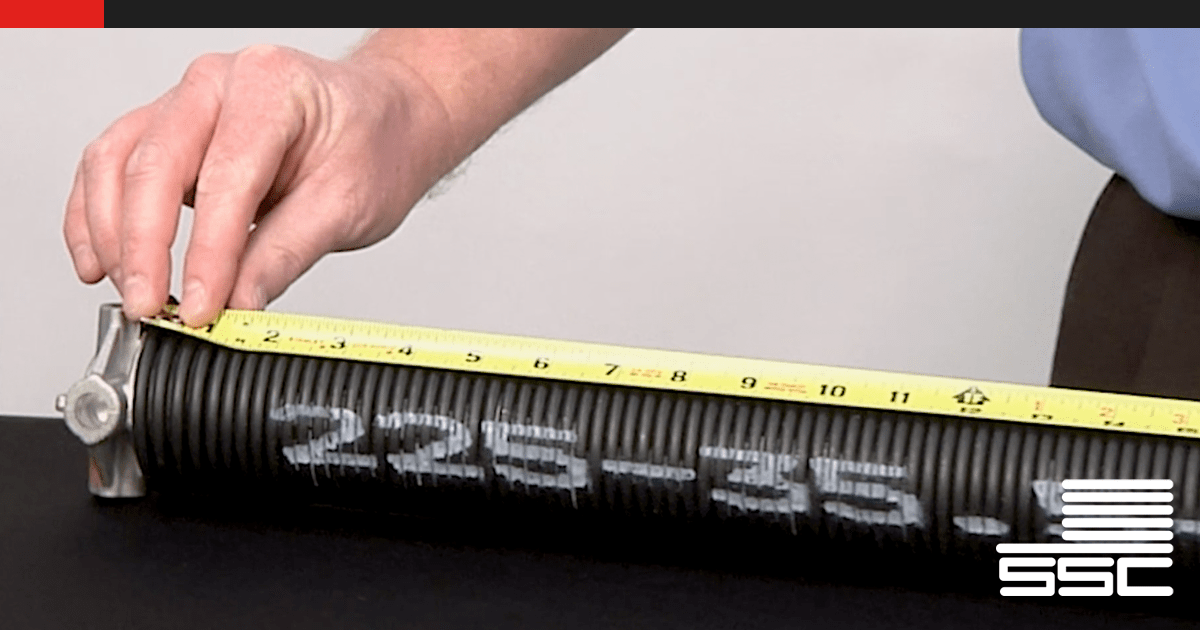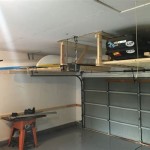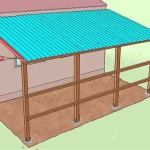How to Determine the Correct Spring Size for Your Garage Door Opener
A garage door opener is a valuable asset for any homeowner. It provides convenience and security, but like any mechanical system, it requires proper maintenance and occasional repairs. One crucial aspect of garage door maintenance is ensuring the springs are in good working order. Garage door springs play a vital role in balancing the weight of the door, allowing it to open and close smoothly. If the wrong size springs are used, the door may not function correctly, leading to potential safety issues and even damage to the door and opener.
Determining the correct spring size for your garage door opener is crucial for safe and efficient operation. This article will explain the factors involved in selecting the appropriate springs and guide you through the process of determining the right size. It is always best to consult with a qualified garage door technician if you have any doubts or feel uncomfortable performing this task yourself.
Understanding Spring Tension and Types
Garage door springs are rated based on their tension, which is measured in pounds of force. The tension rating determines how much weight the spring can support. The higher the tension rating, the more weight the spring can handle. There are two primary types of garage door springs:
- Torsion springs: These are the most common type and are located above the door on a shaft. They provide the primary lifting force. They come in varying sizes and have a colored dot indicating their tension rating.
- Extension springs: These are found on either side of the door and are attached to cables. They work by extending and contracting as the door is opened and closed. They are generally less common and used for lighter-duty doors.
Factors Influencing Spring Size Requirements
Determining the correct spring size for your garage door requires considering various factors, including:
- Door Weight: The weight of your garage door is the most significant factor. Heavier doors require higher tension springs. You can find the weight of your door on the manufacturer's label or by measuring its dimensions and multiplying by the approximate weight per square foot (usually around 15-20 pounds).
- Door Size: Larger doors, with more surface area, will be heavier and require stronger springs. Measure the height and width of your door to calculate its total area.
- Materials: Different materials used in the door construction will also affect its weight. For example, a solid wood door will be heavier than a door made of aluminum or fiberglass.
- Number of Springs: Most garage doors use two torsion springs. However, some doors, especially heavier ones, may have three or more. Note the number of springs on your door to determine the individual spring tension needed.
- Spring Type: The type of springs used (torsion or extension) will affect the selection. Torsion springs are generally more powerful and can handle heavier doors.
How to Determine the Right Spring Size
To determine the correct spring size, you can follow these steps:
- Measure the Door Weight: Determine the total weight of your garage door. Consider factors mentioned previously: materials, size, and additional elements like windows or insulation. Use a spring calculator online to determine the approximate weight.
- Identify the Spring Type: Observe the springs on your garage door. Are they torsion springs (located above the door) or extension springs (on the sides)?
- Determine the Number of Springs: Count the number of springs present on your door. The most common number is two, but some heavier doors may have three or more.
- Measure the Diameter and Wire Gauge: If possible, measure the diameter of the torsion spring using a measuring tape or caliper. Also, note the wire gauge, which is the thickness of the spring wire. These measurements will help determine the spring rating and compatibility.
- Consult a Garage Door Expert: For accurate and safe spring selection, it is always best to consult a qualified garage door technician. They can assess your door's condition, determine the appropriate springs, and ensure proper installation.
Remember that attempting to replace springs without proper expertise can be dangerous. Springs are under substantial tension and improper handling can cause serious injury. If you are unsure about the correct size or have any questions, it is always best to contact a professional garage door specialist.

5 Things To Determine The Correct Garage Door Spring Size Ssc

How To Choose The Right Garage Door Springs For Your Home Ogd

How Do I Know What Garage Door Spring To Buy Garageworks

5 Things To Determine The Correct Garage Door Spring Size Ssc

How To Measure And Order Torsion Springs Ssc

How To Choose The Right Garage Door Springs For Your Home Ogd

5 Things To Determine The Correct Garage Door Spring Size Ssc

Torsion Springs For Garage Doors

Should I Have 1 Or 2 Torsion Springs On My Garage Door

Dura Lift 120 Lb Heavy Duty Extension Garage Door Spring 2 Pack Dlegr120 The Home Depot
Related Posts








